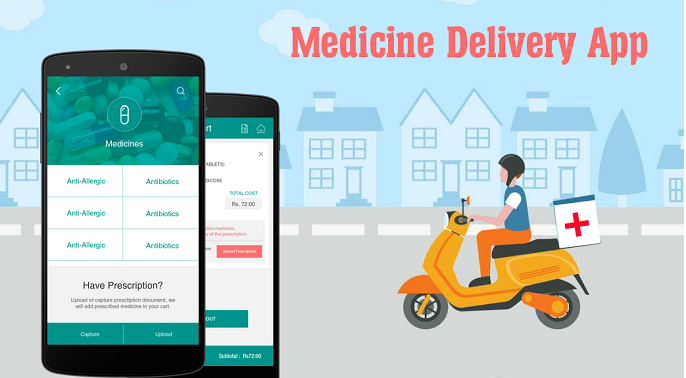Medicine delivery apps are quickly becoming essential tools in modern healthcare, offering convenience, speed, and access to life-saving medications at the tap of a button. However, as user expectations increase, these apps must go beyond basic ordering and delivery. This is where Artificial Intelligence (AI) and Machine Learning (ML) are transforming the game.
By integrating AI and ML, medicine delivery apps can become smarter, more efficient, and highly personalized—ultimately improving patient outcomes and business performance. Here’s how:
1. Personalized Recommendations and Reminders
AI and ML can analyze user data, such as previous orders, prescriptions, health history, and even browsing behavior, to offer:
- Smart medication suggestions (including generic alternatives)
- Refill reminders based on dosage patterns
- Health supplement recommendations based on conditions or preferences
These features help users stay on track with their medication and encourage healthier habits.
2. Predictive Refill and Auto-Order Systems
AI algorithms can predict when a patient will need a refill and automatically schedule it.
- No more manual tracking or missed doses
- Auto-orders can be confirmed or modified by the user
- Improves adherence to long-term treatments, especially for chronic conditions
This predictive capability adds value to both users and pharmacies by reducing drop-offs and improving inventory planning.
3. Optimized Inventory Management
For pharmacies, AI-driven inventory management systems help:
- Forecast demand trends based on historical and seasonal data
- Automatically restock medications before they run out
- Prevent overstocking of slow-moving drugs
With better stock control, businesses can cut costs, avoid losses, and maintain a consistent supply of high-demand items.
4. Faster and Smarter Delivery Logistics
Machine learning models optimize delivery routes and times using real-time data from:
- Traffic conditions
- Weather updates
- Delivery personnel availability
This leads to faster deliveries, lower costs, and improved customer satisfaction—especially important for emergency or time-sensitive medications.
5. 24/7 Virtual Assistance with AI Chatbots
AI-powered chatbots provide instant support for common user questions, including:
- Drug dosage and side effects
- Prescription requirements
- Order status and delivery tracking
Over time, these bots learn from interactions and improve their responses, offering fast and consistent support without the need for human agents.
6. Fraud Detection and Prescription Verification
AI helps maintain the integrity of the platform by:
- Validating prescription images through image recognition
- Detecting unusual buying patterns (e.g., repeated purchases of restricted drugs)
- Alerting pharmacists or blocking suspicious activities
This ensures compliance with medical regulations and builds user trust in the platform.
7. Dynamic Pricing and Promotions
AI analyzes user demographics, purchasing behavior, and market trends to:
- Offer personalized discounts and coupons
- Adjust prices based on demand and supply
- Highlight special offers for relevant medications
Such tailored promotions increase customer engagement and retention.
8. Telemedicine Integration and Smart Consultations
Many apps now include virtual consultations. AI enhances this experience by:
- Assisting in symptom analysis before the doctor joins
- Suggesting medicine recommendations after the consultation
- Connecting patient data from the app to provide better medical context
This results in a seamless healthcare journey from consultation to medication delivery.
9. Health Monitoring and Proactive Care
Through integration with wearables or manual inputs, AI can:
- Monitor health data (heart rate, blood pressure, glucose levels)
- Alert users or healthcare providers about irregularities
- Recommend medication adjustments or re-consultations
This turns the app into a comprehensive digital health assistant, not just a delivery platform.
10. Data-Driven Business Insights
AI and ML help pharmacy owners and delivery service providers understand:
- Which medicines are in high demand
- What delivery routes are most efficient
- Which users are at risk of dropping off or unsubscribing
These insights help optimize marketing, logistics, and customer service strategies for long-term growth.
Conclusion
AI and machine learning are redefining what medicine delivery apps can do. They are transforming static apps into intelligent platforms that offer personalized care, efficient service, and proactive health management.
Whether you’re a pharmacy, a healthcare startup, or an established medical delivery service, integrating AI and ML can help you meet rising expectations, stand out in a competitive market, and most importantly—improve the lives of your users.
Ask ChatGPT

